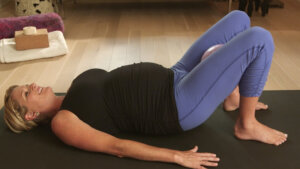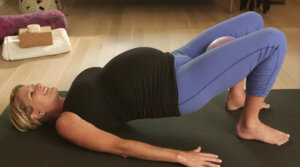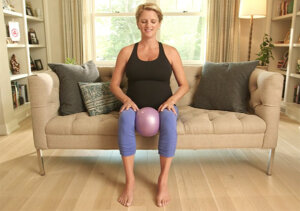
A partner may wonder how a doula would help during labor, with concern about whether the doula might replace their role. Actually, a good doula enhances a partner’s involvement by helping both the birthing person and the partner feel more calm, confident, and supported. To understand how, let’s compare the roles of doula and partner.
This page contains affiliate links, through which we receive a small commission.
A birth doula is a companion who is very familiar with childbirth. The doula is like a childbirth educator, objective listener, and personal assistant wrapped into one. The doula learns what the pregnant person wants during pregnancy and strategizes individualized help for comfort and coping and reminders of all the tips and tricks learned during childbirth education classes. The doula does not make medical decisions or give opinions, but they can help the birthing family ask good questions of medical staff and make sure they understand their options.
Doulas typically meet with families at length prenatally, at least twice. This gives the doula knowledge of both yours and your partner’s fears, joys, and hopes surrounding the birth. During birth, the doula stays with you no matter how long or short your labor is and does not change shifts the way nurses and some care providers do. When you hire a doula, you hire a champion for you — someone who sticks with you no matter what.
Numerous studies show that continuous labor support improves outcomes for birthing parents and babies, including an increased likelihood of vaginal birth and shorter labors. The presence of a trained doula may also decrease the chances of cesarean birth, instrumental vaginal birth, pain medication use, and negative feelings about the birthing experience.
The partner knows the pregnant person best and offers intimate support. Often, intimacy is what the birthing person needs most from their partner — to simply feel their presence, affection, and support. The loving arms of the partner are often in use for hugging, holding, and rubbing limbs and back. The partner often benefits from a doula’s suggestions of how to best help their loved one. There is room for both the doula (birth expert) and partner (love).
Seek a mature doula that respects the choices you’ll make for your birth. It’s important the doula knows how to nurture your primary relationships. The doula is able to come forward or sit back as needed, so that others who are supporting you have their time to shine. The doula certifying organization called DONA is a great place to begin your doula search. Spinning Babies® considers The Birth Partner, by Penny Simkin, an essential read for partners.
Relieve pelvic pain with ball squeezes. Get a child’s toy or an adult physio ball. The best-sized ball is one you can grip in your hand without dropping.
Tip: Try this before or after each meal to help create a routine around this helpful daily exercise. You can also sit up on a chair with your feet on the floor and squeeze the ball as above.
Early in pregnancy, do the ball squeeze on the floor with a modified half bridge.
Later in pregnancy, sit on a chair and put the ball between your knees.



At 4-5 inches (10-12.7 cm) long and 2.5 ounces (70.87 grams) in weight, your baby now appears fully formed, though its skin is translucent and thin.
The baby at 15 weeks gestation has 16 movement patterns. [2]

You might begin noticing increased libido, though not all pregnant people experience this second-trimester change. Your baby remains perfectly safe during lovemaking. A guideline is if you are comfortable (not being knocked around) and you enjoy the sex then your baby floats happily and safely in your protected womb.
Energy in general is on the upswing. Exercise can be also be a joy. Seek a walk in nature as often as you can.
Affirmations are short, powerful statements that can affect your conscious thoughts. Close your eyes, breathe deeply and slowly, and repeat the following to yourself each day throughout the next week. Fill yourself with breath and feel the joy:
Affirmations are short, powerful statements that can affect your conscious thoughts. Close your eyes, breathe deeply and slowly, and repeat the following to yourself each day throughout the next week. Fill yourself with breath and feel the joy:
Doulas enjoy the Spinning Babies® Workshop where they learn how to help support favorable positions for you and baby to ease birth. Send your doula a link to Spinning Babies® Workshops at SpinningBabies.com/Events/.
Spinning Babies® Parent Class video makes a great gift for your doula as well as education to protect your desire for a vaginal birth.
For additional education to even further enhance your pregnancy and labor preparation, shop our extensive collection of digital downloads, videos, DVDs, workbooks, and more.
One of our most beloved products, now with subtitles in English, French, and Spanish, offering expert support to reduce intervention and increase comfort throughout pregnancy and birth.